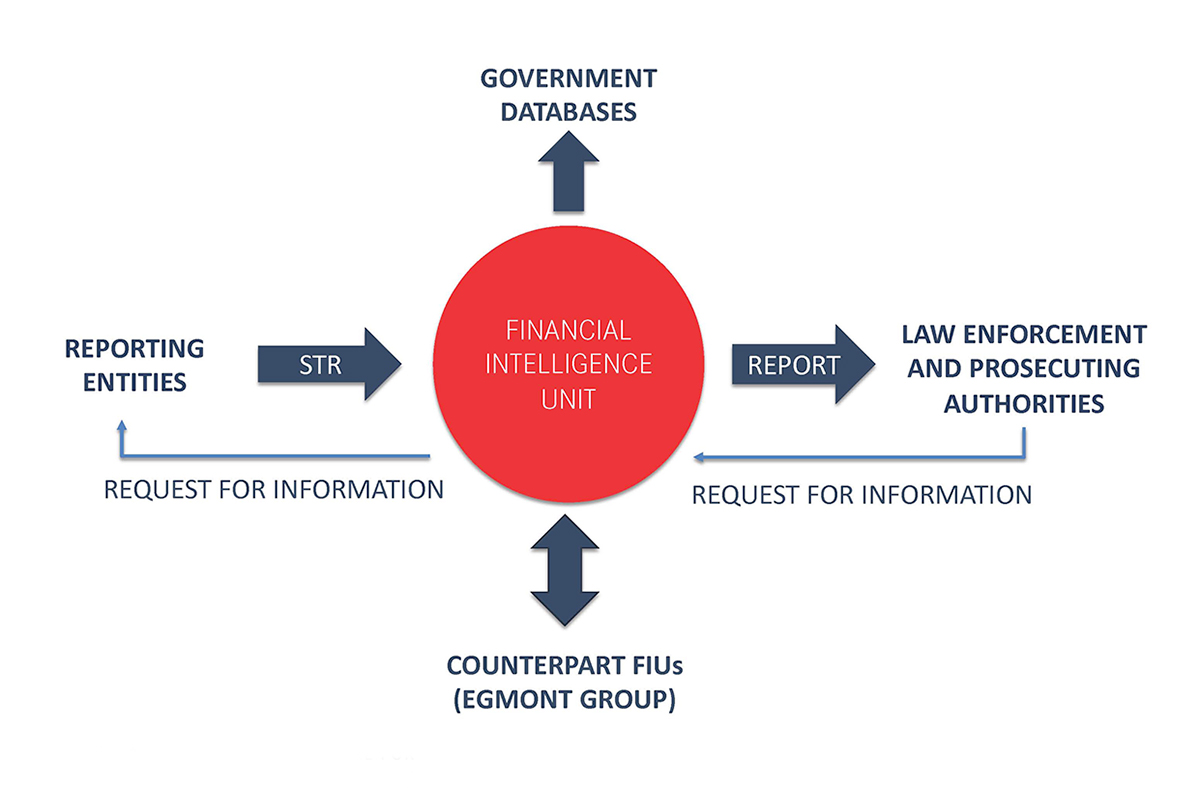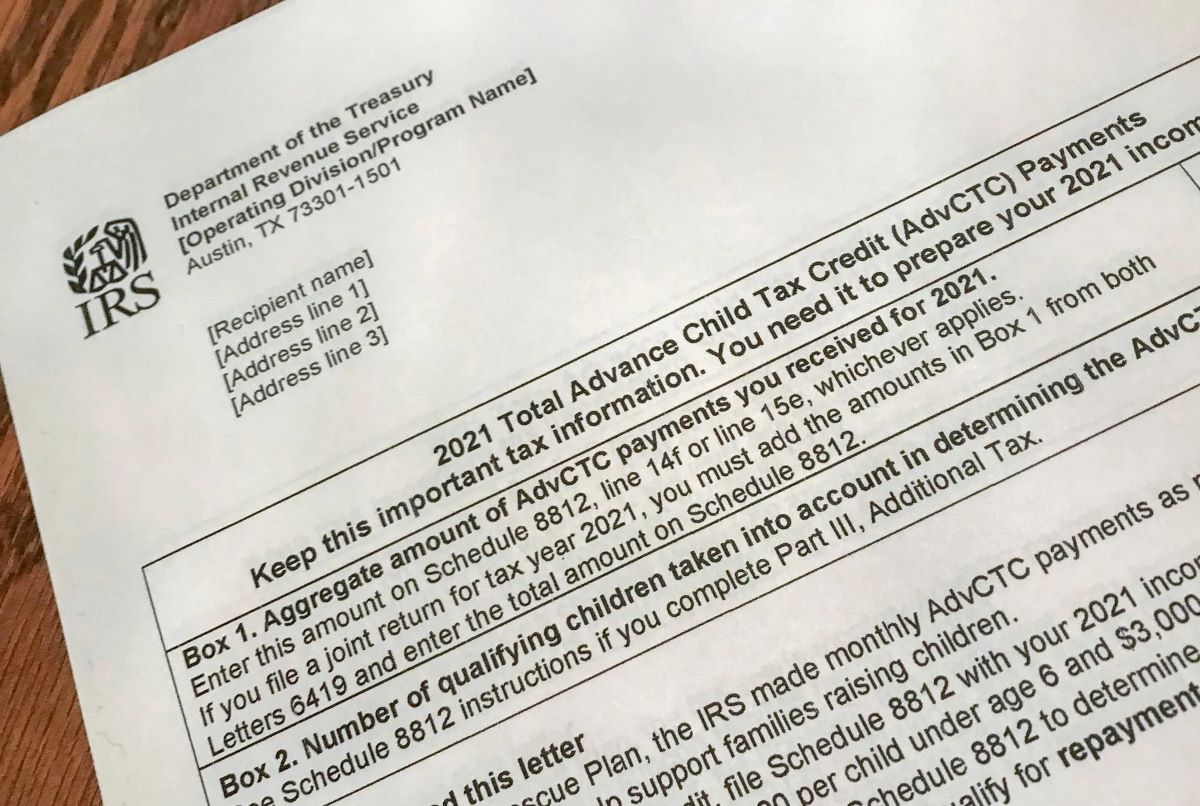Home>Finance>How Often Should A Financial Advisor Contact Clients


Finance
How Often Should A Financial Advisor Contact Clients
Published: October 10, 2023
Discover the ideal frequency for a financial advisor to communicate with clients. Gain valuable insights on managing finances and building wealth.
(Many of the links in this article redirect to a specific reviewed product. Your purchase of these products through affiliate links helps to generate commission for LiveWell, at no extra cost. Learn more)
Table of Contents
- Introduction
- Importance of Regular Communication
- Factors to Consider in Determining Frequency of Contact
- Frequency of Contact for Different Client Scenarios
- Strategies for Effective Client Communication
- Utilizing Technology for Client Communication
- Benefits of Regular Communication for Advisors and Clients
- Conclusion
Introduction
In the world of finance, building strong relationships with clients is essential for success. And one of the key components of nurturing those relationships is through regular communication. As a financial advisor, staying in touch with your clients not only helps to build trust and loyalty but also allows you to provide ongoing support and guidance tailored to their specific needs and goals.
However, determining the frequency of client communication can be a delicate balance. While you want to stay in contact regularly, you also don’t want to overwhelm or annoy your clients with excessive communication. So, how often should a financial advisor contact their clients?
There is no one-size-fits-all answer to this question. The appropriate frequency of contact will depend on several factors, including the individual preferences of your clients, the nature of their financial situation, and the stage of their relationship with you as their advisor.
In this article, we will explore the importance of regular communication between financial advisors and their clients, factors to consider in determining the frequency of contact, suggested frequency for different client scenarios, strategies for effective client communication, and the benefits of regular communication for both advisors and clients.
By understanding the importance of staying in touch and tailoring your communication approach to meet the needs of your clients, you can foster stronger relationships and ultimately enhance the success of your advisory practice.
Importance of Regular Communication
Regular communication between financial advisors and their clients plays a crucial role in maintaining a healthy and productive relationship. It establishes a strong foundation based on trust, transparency, and personalized guidance. Here are some key reasons why regular communication is vital:
- Building Trust: Consistent communication helps to build trust between advisors and clients. By keeping your clients informed about their financial progress, market updates, and any changes or opportunities that may arise, you demonstrate your dedication to their success and well-being.
- Providing Guidance: Financial markets are complex and ever-changing. By engaging in regular communication, advisors can provide ongoing guidance and support to clients, helping them make informed decisions based on their unique financial goals and risk tolerance.
- Adapting to Changing Needs: Life circumstances and financial goals can evolve over time. Through regular communication, advisors can stay updated on any changes in their clients’ lives and adjust their strategies accordingly. This ensures that their financial plans remain aligned with their current needs and objectives.
- Addressing Client Concerns: Regular check-ins and open lines of communication allow clients to express any concerns or questions they may have. By addressing these issues promptly and effectively, advisors can alleviate potential anxieties and build client confidence.
- Staying Ahead of Opportunities and Risks: Financial markets are dynamic, and opportunities and risks can arise unexpectedly. Keeping clients informed about market conditions and industry trends allows them to capitalize on opportunities and mitigate potential risks with your guidance.
Overall, regular communication serves as the foundation for a successful, long-term advisory relationship. It ensures that clients feel supported, informed, and confident in their financial decisions, while advisors gain a deeper understanding of their clients’ needs and can provide personalized guidance.
Factors to Consider in Determining Frequency of Contact
When determining the appropriate frequency of contact with your clients, it’s necessary to take into account several factors that can influence their preferences and needs. Understanding these factors will help you strike the right balance and provide optimal communication. Here are some key considerations:
- Client Preferences: Every client is unique, and their preferences for communication may vary. Some clients may prefer more frequent updates and interactions, while others may prefer a less frequent approach. Take the time to understand individual client preferences and adapt your communication strategy accordingly.
- Stage of the Client Relationship: Consider the stage of your relationship with each client. New clients may require more frequent communication to establish trust and familiarity, while long-term clients who have a solid understanding of your services may require less frequent check-ins.
- Financial Goals and Complexity: Evaluate the complexity of each client’s financial goals and the level of involvement needed to help them achieve those goals. Clients with more complex financial situations may require more frequent communication to ensure their plans remain on track.
- Life Events: Life events such as marriage, birth, retirement, or the purchase of a new home can significantly impact a client’s financial situation. Be proactive in reaching out during these times to provide guidance and support.
- Market Volatility and Conditions: During periods of market volatility or significant economic events, it may be necessary to increase the frequency of communication. Keeping your clients informed and providing reassurance during uncertain times can help alleviate any anxieties and maintain their confidence in your expertise.
By considering these factors, you can tailor your communication approach to meet the specific needs and preferences of each client. Regularly assessing and adjusting the frequency of contact based on these factors will ensure that your communication remains relevant, meaningful, and valuable.
Frequency of Contact for Different Client Scenarios
The appropriate frequency of contact will vary depending on the specific client scenarios and their individual needs. Here are some guidelines to help you determine the optimal frequency of contact in different situations:
- New Clients: When establishing a new client relationship, it’s important to initiate regular contact to build trust and understanding. Consider scheduling weekly or bi-weekly check-ins during the initial stages. As the relationship develops, customize the frequency based on client preferences and needs.
- Active Investment Clients: Clients who are actively involved in investment strategies or have a higher risk tolerance may require more frequent communication. Regular updates on portfolio performance, market trends, and investment opportunities can help keep them engaged and informed. Monthly or quarterly check-ins may be appropriate in such cases.
- Long-term Wealth Management Clients: For clients with long-term investment objectives and comprehensive wealth management plans, quarterly or semi-annual reviews are generally sufficient. These reviews allow you to assess progress, adjust strategies if necessary, and address any changes in their financial situation or goals.
- Retirement Planning: Clients approaching retirement or in the early stages of retirement may benefit from more frequent communication. Consider scheduling quarterly or semi-annual check-ins to discuss retirement income strategies, investment distribution plans, and any adjustments needed based on market conditions or changes in their retirement goals.
- Life Events and Transitions: During significant life events like marriage, divorce, or the loss of a loved one, it’s important to provide extra support and guidance. Reach out proactively during these times to offer assistance and reassurance. Maintain regular contact to address any financial adjustments that may be necessary due to these life transitions.
Remember, these are general guidelines, and it’s important to adapt them to each client’s specific needs and preferences. By regularly assessing and discussing communication frequency with your clients, you can ensure that you are providing the right level of engagement and support throughout their financial journey.
Strategies for Effective Client Communication
Effective client communication goes beyond just the frequency of contact—it also encompasses the manner in which you engage with your clients. Here are some strategies to optimize your communication and ensure that your clients feel heard, understood, and valued:
- Active Listening: Practice active listening skills during client interactions. Give your undivided attention, ask clarifying questions, and summarize the key points to show that you understand their concerns and objectives. This builds trust and demonstrates that you genuinely care about their financial well-being.
- Personalization: Tailor your communication to the individual client. Use their preferred communication channels, understand their communication style, and provide information that is relevant to their unique financial situation and goals. Personalization shows that you value their needs and enhances the effectiveness of your communication.
- Clear and Concise Messaging: Communicate complex financial concepts in a clear and easily understandable manner. Avoid jargon and industry-specific terms that may confuse or intimidate clients. The goal is to ensure that your clients fully comprehend the information you are conveying and can make informed decisions based on it.
- Regular Reporting: Provide regular reports and updates on portfolio performance, financial goals, and any relevant changes in the market. Clear and visually appealing reports can help clients track their progress and understand the impact of their investment decisions. This fosters transparency and strengthens their confidence in your abilities as their advisor.
- Proactive Communication: Be proactive in reaching out to your clients instead of waiting for them to come to you. Share timely market insights, industry news, or educational resources that may be of interest to them. This shows your dedication to their financial success and positions you as a valuable resource.
- Multiple Communication Channels: Offer various communication channels to cater to different client preferences. Some clients may prefer face-to-face meetings, while others may prefer phone calls, emails, or online video conferences. By accommodating their preferences, you enhance their comfort and engagement in the advisory process.
By implementing these strategies, you can promote effective communication that fosters trust, engagement, and understanding between you and your clients. Ultimately, this will strengthen the client-advisor relationship and lead to more successful outcomes in their financial journey.
Utilizing Technology for Client Communication
In today’s digital age, technology offers numerous tools and platforms that can greatly enhance client communication for financial advisors. Leveraging these technological advancements can streamline communication processes, improve efficiency, and provide added convenience for both advisors and clients. Here are some ways to utilize technology for effective client communication:
- Client Portals: Utilize secure online client portals where clients can access their financial information, reports, and documents anytime and from anywhere. These portals provide a centralized platform for communication, allowing clients to view updates, ask questions, and securely exchange information with ease.
- Email and Messaging: Email remains a popular form of communication. Use email to send regular updates, newsletters, and important announcements to your clients. Additionally, consider utilizing messaging apps or secure messaging platforms for quick and convenient communication that ensures privacy.
- Video Conferencing: Video conferencing tools enable face-to-face communication with clients, regardless of their geographical location. Conduct virtual meetings for regular check-ins, reviews, or discussions on complex financial matters. Video conferences offer a more personal and interactive experience than phone calls or emails.
- Social Media: Utilize social media platforms to share educational content, market insights, and news relevant to your clients. Engage with your clients through comments and direct messaging to address their questions or concerns. Social media can help build an online community and foster stronger relationships.
- Financial Planning Software: Use financial planning software to streamline the process of creating, monitoring, and updating financial plans for your clients. These tools can generate personalized reports, track progress towards goals, and provide visual representations of financial scenarios, making it easier for clients to understand their financial situation.
- Robo-Advisory Platforms: Consider incorporating robo-advisory platforms into your practice to offer low-cost investment options and automated financial advice to clients. These platforms can provide real-time portfolio monitoring, rebalancing, and personalized investment recommendations based on algorithms and client inputs.
While technology can enhance client communication, it’s important to strike a balance and maintain a human touch in your interactions. Personalize your communication and use technology as a tool to facilitate effective communication rather than replacing the personal connection between advisor and client.
By utilizing technology strategically, financial advisors can provide a seamless and efficient communication experience for their clients, enabling them to stay informed, engaged, and connected to their financial goals and strategies.
Benefits of Regular Communication for Advisors and Clients
Regular communication between financial advisors and their clients brings forth a multitude of benefits for both parties involved. Here are some key advantages of maintaining a consistent and open line of communication:
- Client Engagement and Satisfaction: Regular communication keeps clients engaged and informed about their financial plans, investments, and progress towards their goals. This level of engagement increases their satisfaction with your services and reinforces their confidence in your abilities as their advisor.
- Improved Client Retention: When you maintain regular communication with your clients, it strengthens the relationship and fosters loyalty. Clients who feel supported and valued are more likely to remain with you over the long term, reducing client turnover and enhancing the stability of your practice.
- Stronger Personalized Guidance: Regular communication allows you to gain a deeper understanding of your clients’ evolving needs, goals, and risk tolerance. With this knowledge, you can provide more personalized guidance and tailored recommendations to help clients achieve their financial objectives effectively.
- Enhanced Trust and Confidence: Consistent communication builds trust and establishes a solid foundation for the advisor-client relationship. Clients who trust their advisor are more likely to rely on their expertise and follow their recommendations, leading to a higher likelihood of achieving their financial goals.
- Opportunity Identification: Through regular communication, advisors can identify new opportunities or strategies that align with the evolving financial landscape. By sharing these insights with clients and discussing potential adjustments to their plans, you help them capitalize on favorable conditions and navigate potential risks.
- Early Issue Detection and Resolution: Regular client communication allows you to identify and address any issues or concerns promptly. By staying proactive and responsive to client needs, you can address potential challenges before they become significant problems, ensuring a smoother financial journey for your clients.
- Client Education and Empowerment: Regular communication provides opportunities to educate clients about financial topics, investment strategies, and industry developments. Empowering clients with knowledge allows them to make more informed decisions and actively participate in their financial planning process.
- Mutually Beneficial Referrals: Maintaining strong client relationships through regular communication increases the likelihood of receiving referrals from satisfied clients. When clients feel valued and supported, they are more inclined to recommend your services to their friends, family, and colleagues.
For financial advisors, regular communication not only benefits clients but also contributes to the overall growth and success of their practice. By fostering trust, providing personalized guidance, and enhancing client satisfaction, advisors can build a strong reputation, attract new clients, and maintain a thriving advisory business.
Conclusion
The importance of regular communication between financial advisors and their clients cannot be overstated. By staying in touch and maintaining open lines of communication, advisors can build trust, provide personalized guidance, and foster stronger relationships with their clients.
When determining the frequency of contact, it’s essential to consider factors such as client preferences, the stage of the client relationship, financial goals, and life events. Tailoring the communication approach based on these factors ensures that clients feel supported, informed, and valued throughout their financial journey.
Implementing effective communication strategies, such as active listening, personalization, and clear messaging, enhances the overall client experience. By utilizing technology, advisors can leverage client portals, email, video conferencing, and social media to streamline communication processes and provide added convenience.
The benefits of regular communication for both advisors and clients are numerous. It leads to higher client engagement and satisfaction, improved client retention, and the opportunity for stronger personalized guidance. Regular communication also enhances trust and client confidence, facilitates early issue detection and resolution, and empowers clients through education.
In conclusion, embracing regular communication as a fundamental component of your advisory practice is crucial for success. By prioritizing regular contact, adapting to client needs, and utilizing technology effectively, financial advisors can foster meaningful connections, achieve client goals, and build a thriving and loyal client base.














